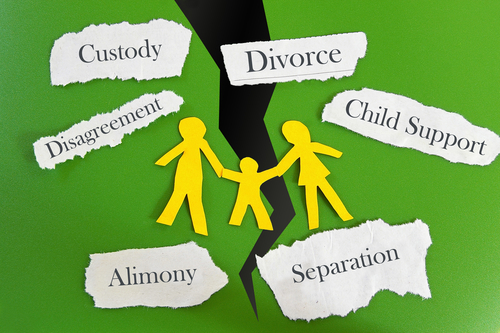Divorce is an undoubtedly emotionally draining process, and other legal issues that come with it definitely add salt to the wound. In some cases, one spouse may qualify to receive alimony from their soon-to-be ex depending on various factors. Alimony, commonly referred to as maintenance or spousal support, refers to payments made by one spouse to the other after a divorce.
It is normal to have questions regarding alimony if you’re considering divorce. What’s more, it is important that you understand whether you’re in a position to receive spousal support or have to pay alimony. Working with a Boise alimony lawyer helps you best answer such questions, and also help you request spousal support if you qualify. At Boise Family Law, we can help you through any process related to divorce, including alimony. Call us today at 208-968-9060 to learn more about the aspects considered for the alimony award.
What Are The Grounds For Divorce In Idaho?
Idaho is one of the states with straightforward divorce laws. Generally, the state recognizes both fault and no-fault divorces. In fault divorces, a spouse may cite the other spouse’s marital misconduct as the cause of divorce. The acceptable fault-based grounds for divorce in Idaho are:
· Adultery
· Extreme cruelty (causing bodily and mental suffering to the other spouse)
· Willful desertion
· Willful neglect of the husband to provide for his wife for at least 1 year
· Drug addiction or habitual drunkenness for at least 1 year
· Felony conviction
· Permanent insanity (with that spouse having been housed in a mental facility for at least 3 years before filing for divorce)
Fault-based divorces require that the alleging spouse prove to the court the reasons for divorce.
What Is A No-Fault Divorce?
A no-fault divorce refers to that which is granted by a court without either spouse establishing a ground for divorce. Generally, a couple can cite “irreconcilable differences,” or simply tell a court that they are no longer compatible and that they don’t expect that to change. No-fault divorces are therefore fast and less costly as neither spouse has to prove that the other is at fault for the divorce.
What Is The Difference Between Legal And Physical Custody?
With divorce comes other legal issues, including child custody. Before you can go ahead with your divorce, it is important that you understand the difference between legal and physical custody. It helps to know that you can share legal custody of the children even if you’re not sharing physical custody.
Legal custody refers to the decisions made every day for the children. Such decisions often involve schooling, medical care, insurance, and religious issues. Provided there are no extraordinary conditions, most courts will award joint legal custody. Physical custody refers to where the children will actually live on a regular basis. Normally, physical custody can be joint or sole custody, which means that it can be granted to both or one of the parents.
How Is Child Support Determined?
Child support refers to the ongoing payment made by a non-custodial parent to help with the financial support of their children. These payments are mostly determined during the process of severance of a marriage through divorce. However, the only requirements for requesting child support in Idaho are the establishment of paternity and maternity.
Idaho uses the “income share” model to calculate child support payment, which ensures that both parents contribute to the child’s upkeep. This method applies directly to parents who share child custody. As such, child support payments are connected to the custody split. Extraordinary medical costs and childcare costs are also considered under Idaho’s child support law.
Under the income share model, both the custodial and non-custodial parents are required to contribute to the child’s financial needs. During a divorce proceeding, a judge estimates the amount that would be spent on children had the family still been together. This amount is then divided among the parents according to their income to come up with a child support award.
Here’s how the income share model works: Suppose the non-custodial parent of a child has a $2,500 monthly income, and the custodial parent has a monthly income of $1,500. The monthly cost of raising a child is estimated at $1,000 by the court. The non-custodial parent’s income is 62.5% of the parent’s total income. It follows that the non-custodial parent will pay 62.5% of the monthly cost of raising their child, which means that they pay $625 in child support.
How Will Property Be Split In The Divorce?
During the divorce process, couples living in Idaho have to decide how to split their assets and debts, or else the court will intervene. Community property laws apply in Idaho, which provide that all assets and debts acquired by a couple during marriage belong equally to both spouses. In divorce, therefore, such property must be split equally. That means that the value of property awarded to each spouse must be substantially equal.
In property division, there are three crucial steps, regardless of whether you deal with the process on your own or a court intervenes. These steps are:
· Determining whether the assets or debts are community or separate
· Determining the value of the community property
· Deciding how to split the property.
What Is Equitable Division And How Does It Work?
Equitable division, also known as equitable distribution or division of property, is a method of dividing property at the time of divorce that takes into account various factors when dividing property and debts. Such factors include how long the spouses have been married, their financial needs, and the financial contribution made by each spouse during marriage.
Under equitable division, property and debts are not divided equally. Rather, the court divides the property between the spouses in a way it deems fair. In most cases, division of property under equitable division will be a 50/50 division, but a court may decide to award one spouse a higher percentage of the marital property depending on factors like:
· The financial state and earning power of a spouse
· The value of separate property for each spouse, including businesses, 401(k) plans, stocks, etc.
· The overall health and ages of each spouse
· Spousal maintenance obligations
· Premarital and prenuptial agreements.
What Happens To The House?
In Idaho, a house is considered community property if it was purchased during the marriage. That means a spouse can keep the house after a divorce if they owned it separately. In some cases, a house owned by one spouse alone can become community property (fully or partly) if the mortgage and other expenses are paid by both spouses.
Some statutory factors for determining property division in Idaho might also determine the spouse that ends up with the family house. For instance, there is a higher likelihood that a spouse with full custody of the children will keep the family house after a divorce.
How Long Will Divorce Take?
On average, a divorce in Idaho can be completed in a minimum of 62 days, provided that all the necessary steps are followed. Once the paperwork has been filed in court, it won’t take more than 90 days for the divorce to be finalized. The duration of the process may however vary depending on the availability of judges and the court’s caseload.
How Much Will A Divorce Lawyer Cost?
A divorce levies an emotional as well as a financial toll to the spouses involved. To hire a divorce lawyer, it would cost you $200-$250 per hour on average. If you are looking to start the divorce process, reach out to Boise Family Law to find out more about the divorce process and legal fees before beginning.
Contact Our Boise Alimony & Spousal Support Attorneys
Divorce, or severance of a marital relationship, is the process of ending a marriage contract. This process is characterized by other legal processes, including property division, child custody, child support, and alimony. While most of the issues can be solved amicably by both spouses, some of the issues, like property division, can get contentious and it is important to involve a family lawyer.
At Boise Family Law, we help you with all legal matters related to divorce, including child support, alimony, and child custody. We understand the emotional anguish and financial strain that comes with divorce, and our family lawyers are dedicated to help you get through the process while you focus on other issues. If you’re looking to begin the divorce process, call us today at 208-968-9060 to schedule an initial consultation.






